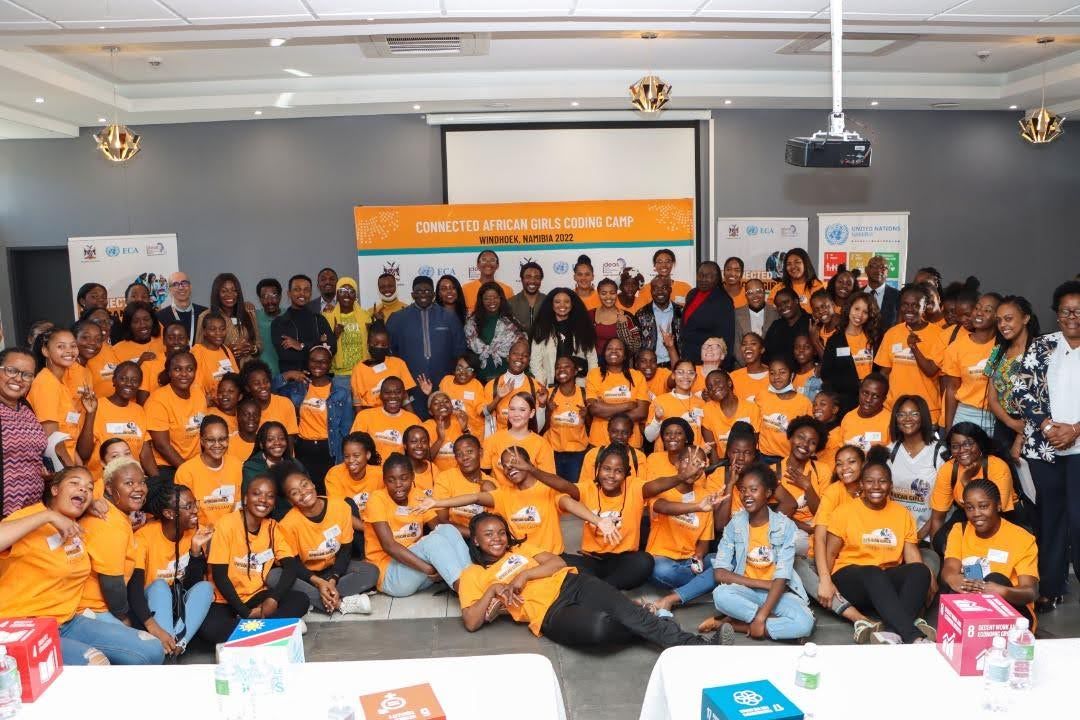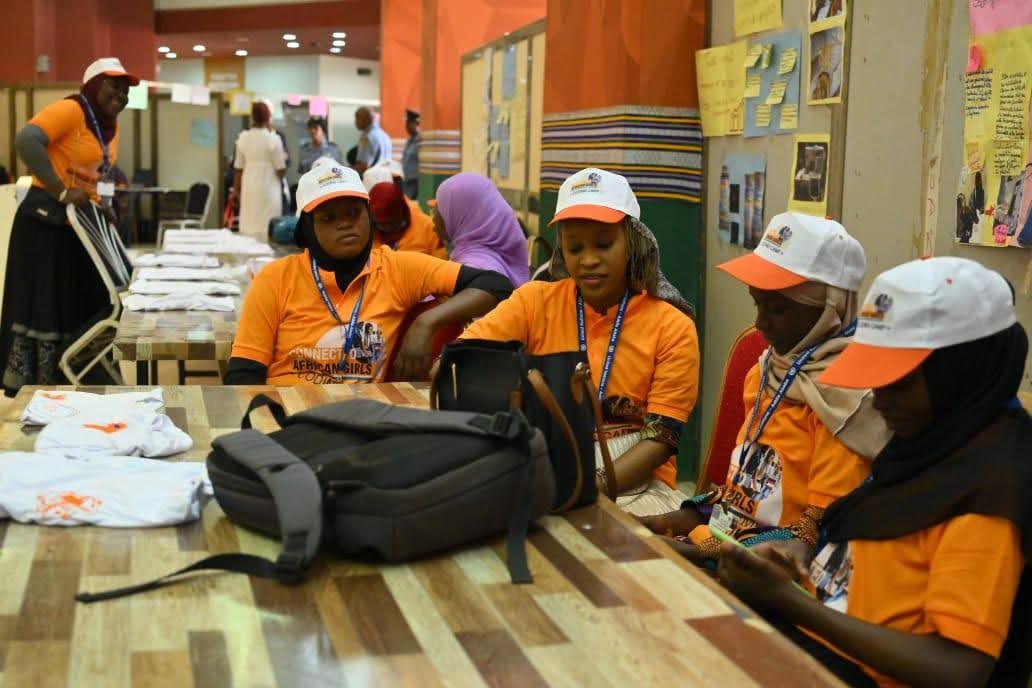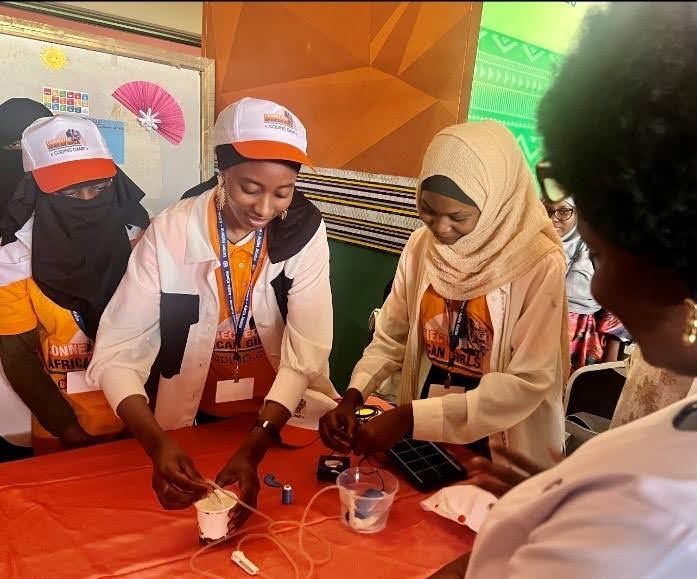 Africa Artificial Intelligence Innovations
Africa Artificial Intelligence Innovations 
The Economic Commission for Africa (ECA) enhances the capacity of African Member States to leverage emerging technologies and innovations through four key interventions:

The Economic Commission for Africa (ECA) champions the development and adoption of comprehensive continental and intergovernmental frameworks necessary for integrating new and emerging technologies, including Artificial Intelligence (AI).
With critical consideration given to ethical and responsible usage of emerging technologies, AI offers Africa a unique opportunity to co-create the fourth industrial revolution. To capitalize on this potential, ECA facilitates high-level meetings and consultations with Member States, pan-African institutions, academia, and the private sector to ensure harmonized policy frameworks and equitable adoption of emerging technologies including AI, across the region.


The Conference of Ministers (COM) is one of the premier forums on the continent for dialogue and exchange of views among African ministers responsible for finance, planning and economic development and governors of central banks on issues pertinent to the development agenda of Africa.
In addition to considering the statutory matters of the Commission, the forum convenes the preparatory meeting for the Committee of Experts and African Ministers of Finance, Planning and Economic Development.
Through its Technology, Innovation, Connectivity and Infrastructure Division (TICID), ECA supports the formulation, adoption, and implementation of policies on emerging technologies and innovation to improve the competitiveness of institutions, enhance the welfare of citizens, and ensure both collective and individual security,
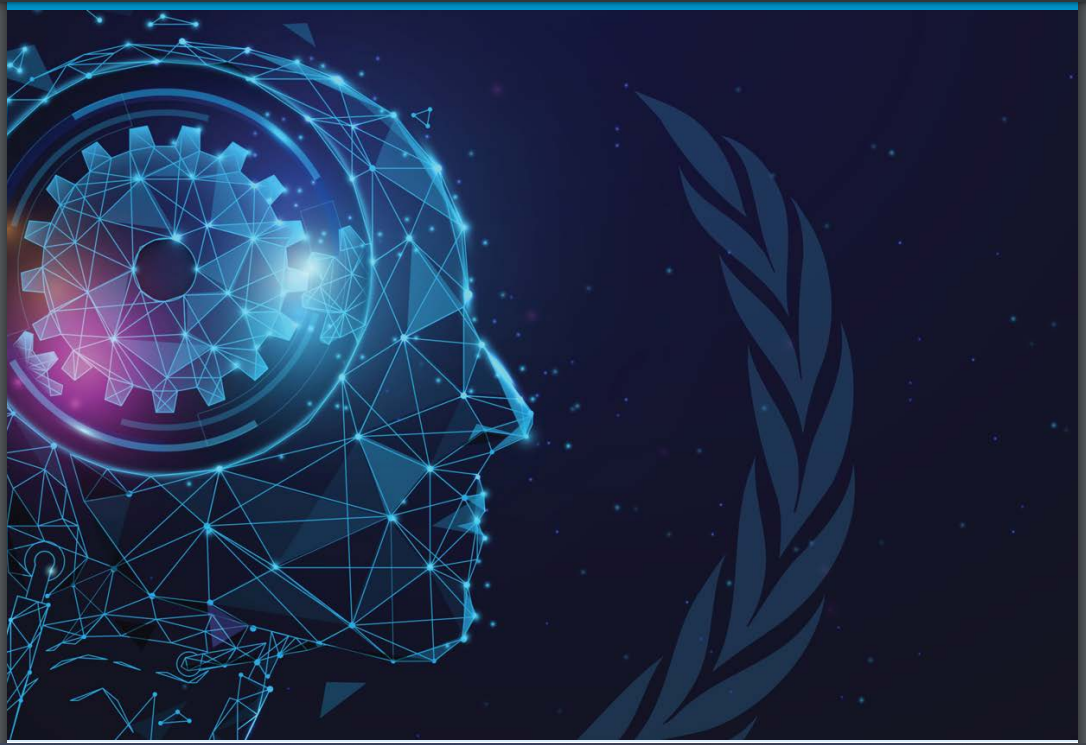
The African Union’s Executive Council endorsed and adopted an AI strategy to streamline the development, use and regulation of generative artificial intelligence (AI) in Africa. The strategy was endorsed during its 45th ordinary session which took place in the Ghanaian capital Accra on 18th July, 2024 (African Union, 2024).
In close collaboration with AUC, ECA supports the development of key continental frameworks such as the African Digital Transformation Strategy 2030, Single Digital Market Framework and the Global Digital Compact (GDC).

ECA and Google signed a landmark memorandum of understanding (MoU) on the margins of the 2024 African Business Forum to support digital transformation in Africa. The partnership focuses on four thematic tracks: Artificial Intelligence (AI) Policy Research, Digital Capacity Building, Cybersecurity & Content Responsibilities and E-commerce and digital trade.
The collaboration on AI Policy Research aims to provide member state policy makers and regulators with research on best practices, strategies, policy blueprints, and regulatory frameworks in AI, cloud computing, and other emerging technologies. The collaboration further aims at empowering UN agencies to improve humanitarian aid and disaster response initiatives through AI, and machines learning techniques, especially focused on but not limited to the building datasets model.

Among ECA’s core programme support areas to Member States is the facilitation of technical and field support through bilateral partnerships with private sector entities, research intuitions and academia. Support areas include advisory services, formulation of strategic documents as well as provision of technical expertise and project implementation guidelines with the objective of accelerating progress towards the achievement of the UN SDGs and Agenda 2063.

Located within the Denis Sassou-Nguesso University in Kintélé Brazzaville, Congo, the African Research Center on Artificial Intelligence (ARCAI) aims to advance AI applications in various development sectors by advancing human-centred approaches to maximize the socio-economic goods of AI while countering the challenges associated with utilizing the technology. The centre will leverage cutting edge AI research leading to innovations in health care services, agriculture, commerce, industry and climate resilience and others, at the continental level.
Inaugurated on the 24th of February 2022 by the Prime Minister of the Republic of Congo and the Economic Commission for Africa (ECA), the centre is set to create economic opportunities while accelerating the development through interdisciplinary research. The center was supported by ECA and its international partners such as the UN Industrial Development Organization (UNIDO), UNESCO, the International Telecommunications Union (ITU), and the Jack Ma Foundation.
Beyond serving as an AI focused training facility; the African Research Center on Artificial Intelligence (ARCAI) offers to provide a hub for research, infrastructure growth, digital policy development. The center aims to stimulate AI education through programs like Master’s degrees in artificial intelligence and data science.
The establishment of the SmartBots Lab within the Botswana Digital Innovation Hub is a collaborative effort supported by ECA, Government of Botswana (Ministry of Agriculture), IFAD and the local entrepreneurial ecosystem. The lab aims to serve as a platform for generating innovative ideas and fostering the development of disruptive technologies and complementary innovations.
To operationalize the SmartBots Lab, ECA has developed a Governance Framework which outlines the necessary elements for successful utilization of the facility. It encompasses people, processes, activities, timeline, venue/space, hardware, and software to ensure the lab's effectiveness. Additionally, the framework emphasizes the governance of ICT systems, including their management, performance, and risk management based on the King III IT Governance Framework.
Botswana envisions the SmartBots Lab as a transformative platform that harnesses digital innovation for sustainable development, empowering individuals, and society. The lab will host entrepreneurs who create innovative products and services aligned with the SDGs, focusing on thematic areas such as mining, Indigenous knowledge, biotech, ICT, and clean tech.

The main objective of the African STEAM Center of Excellence (ASTEAM CoE) is to drive sustainable economic development through Science, Technology, Engineering, Arts, and Mathematics (STEAM) education, equipping students with globally competitive scientific and technological skills. Furthermore, the STEAM Center aims to:
A strategic document to establish the center has been developed and endorsed through a validation workshop, incorporating inputs from 40 stakeholders representing various sectors.L

The Economic Commission for Africa (ECA) has played a pivotal role in supporting the Ethiopian National Digital ID Program as one of its esteemed development partners since the inception of the partnership in 2019.
ECA's contributions have been instrumental, particularly in providing technical assistance and capacity building. The organization has actively engaged in offering program support by recruiting consultants and experts in various areas such as operations, project management, and technology acquisitions. ECA also facilitated the procurement of an SDK license, which has proven crucial in conducting quality checks on biometric data and streamlining matching processes.
Furthermore, ECA has been integral in promoting knowledge-sharing and experience-building initiatives such as covering expenses associated with the Ethiopian National Digital ID Program&spos;s participation in key ID events, including ID4Africa.

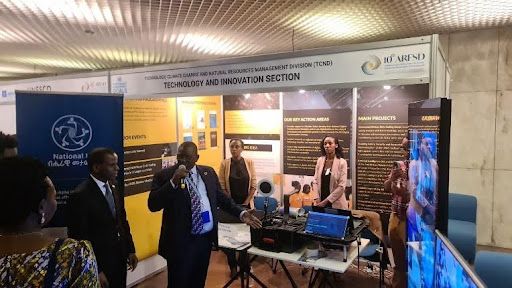
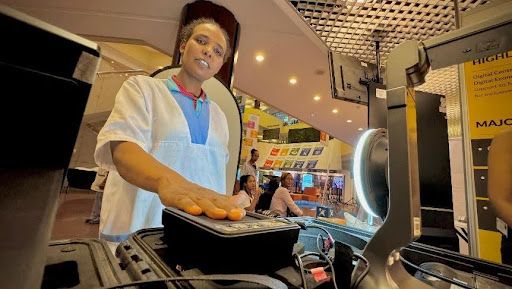
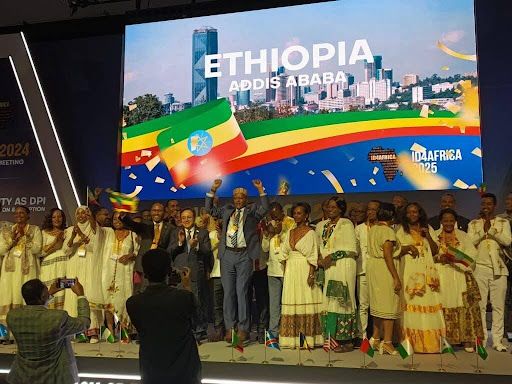

Artificial Intelligence (AI) offers transformative opportunities for Africa, particularly among its young digital talent. With enhanced access to digital skills, AI and emerging technologies can accelerate progress towards the UN Sustainable Development Goals (SDGs) and Agenda 2063.
Through regional capacity-building and consultative workshops, the Economic Commission for Africa (ECA) works to strengthen the capacity of Member States to promote Computer Science (CS) and Science, Technology, Engineering, Arts, and Mathematics (STEAM) education. This enables them to harness AI not only as a tool for technological advancement but also as a catalyst for inclusive and sustainable development.

The ECA most recently signed a landmark MoU with Google on the margins of the African Business Forum to support digital transformation in Africa. The partnership focuses on four thematic tracks: Artificial Intelligence (AI) Policy Research, Digital Capacity Building, Cybersecurity & Content Responsibilities and E-commerce and digital trade. The partnership was announced by H.E Claver Gatete, Executive Secretary at the Economic Commissions for Africa (ECA) during the 2024 African Business Forum (ABF).
The collaboration on Digital Skills Development in Computer Science (CS), Science, Technology, Engineering, Arts and Mathematics (STEAM) education and job-ready skills through trainings and learning events. Currently, the Google-ECA-Camden Education collaboration aims at providing i) training to 5,000 students across (14) African countries on STEM Skills Development, including robotics; ii) hold National Robotics Competitions and iii) prepare teams to compete at the global stage at the World Robotics Olympiad (WRO).
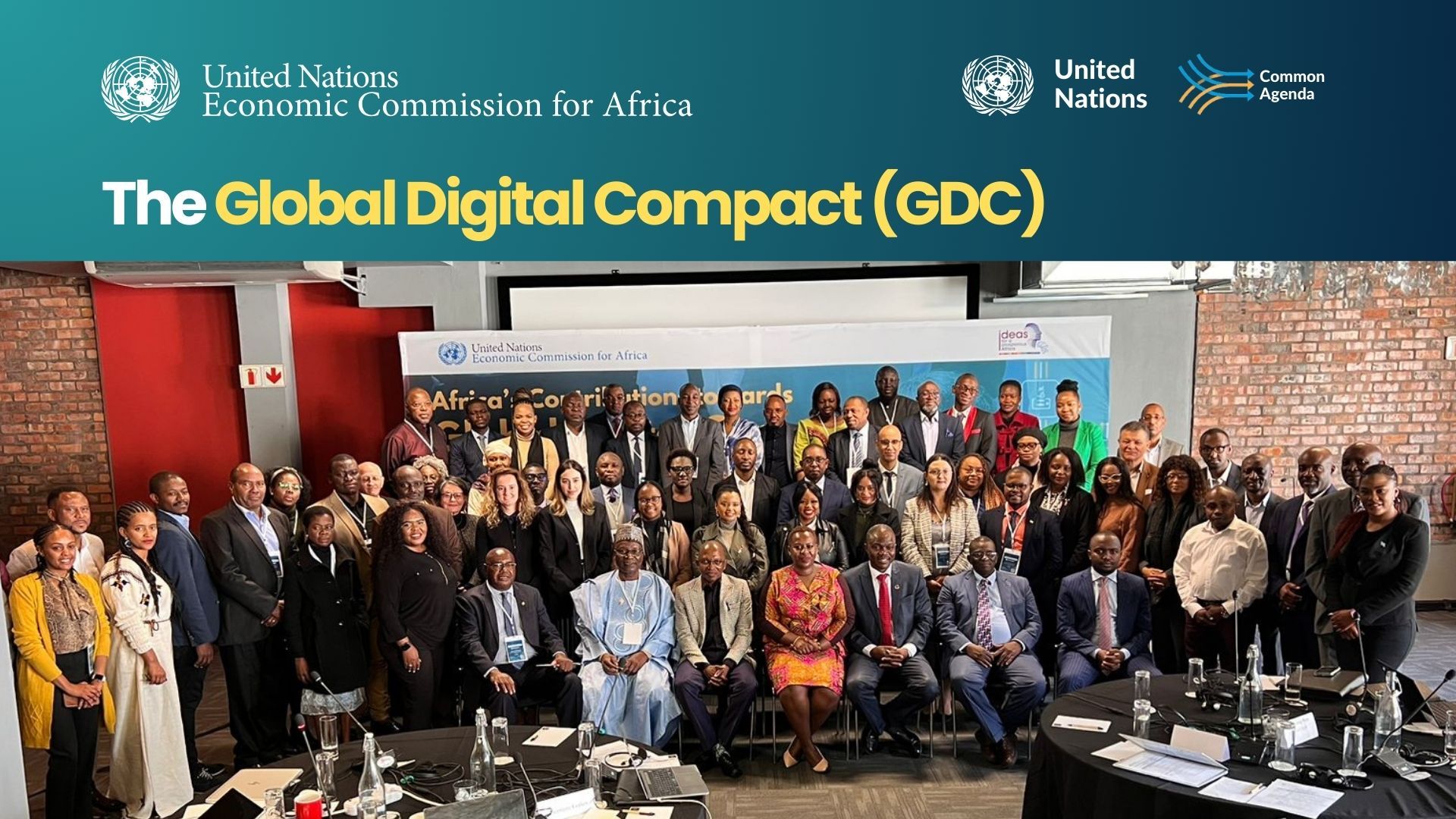
The Economic Commission for Africa (ECA) gathers national authorities, experts and policymakers to contribute technical inputs towards the UN Global Digital Compact (GDC) policy declaration as part of Africa's contribution in shaping an inclusive and equitable digital future.
The GDC is the UN Secretary-General’s roadmap to foster an open, free, and secure digital environment with everyone. Grounded in shared principles of trust, inclusivity, and sustainability, the Compact is an opportunity to include all voices from all sectors.
The African Policy Declaration on the Global Digital Compact (GDC) outlines 8 thematic pillars that were identified as the region’s top priorities for harmonized policy formulation and implementation:
The first Regional Consultative Meeting was held 4 – 5 July 2023 in Cape Town, were ECA convened representatives from 32 Member States alongside stakeholders and policymakers. This was later followed by a series of open stakeholders’ consultation session on data governance, private sector partnerships, youth and media engagement.
▶ Watch the full recording of the most recent consultation sessions covering the first African Regional GDC Consultation held 4 - 5 July, 2023 in Cape Town up to the most recent deep dives held with various stakeholder segments. Available on ECA’s Digital Center of Excellence YouTube channel
Download the African Policy Declaration on the African contribution to the Global Digital Compact.
The Connected African Girls initiative aims to enhance the implementation of digital literacy programs for young girls and women in schools. This initiative is part of ECA’s capacity-building efforts to promote human capital development and bridge the digital divide, particularly among young women and girls. Various editions of the coding camps are co-hosted by ECA and host governments, providing a foundation to integrate these activities into national curricula.
The hybrid coding camp series are designed to equip young women and girls in Africa with the digital skills necessary to thrive in the digital economy. Since 2020, the camps have been conducted in eight Member States, including Ethiopia, Senegal, Guinea Conakry, Cameroon, Namibia, Tanzania, Niger, and Equatorial Guinea, training over 35,000 participants across the continent.
